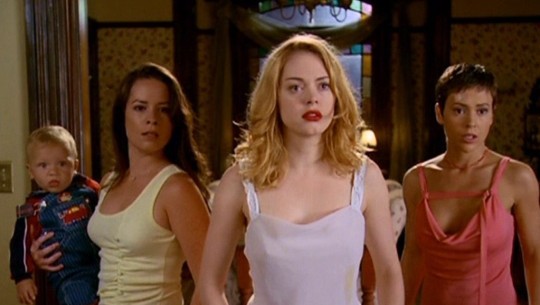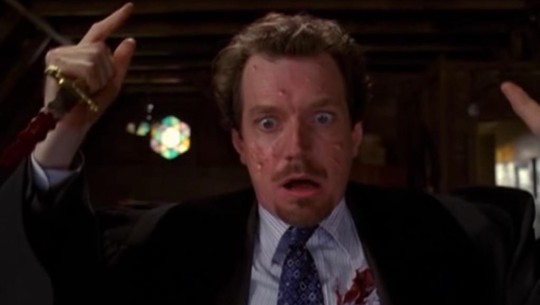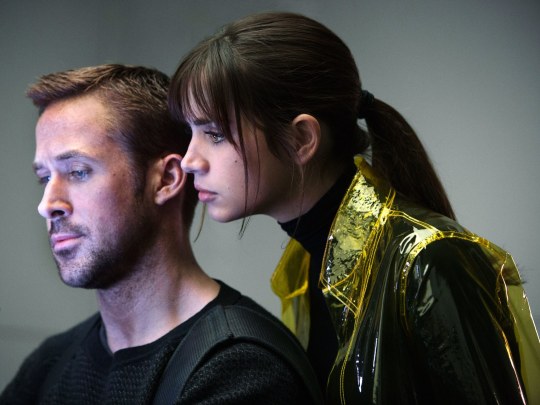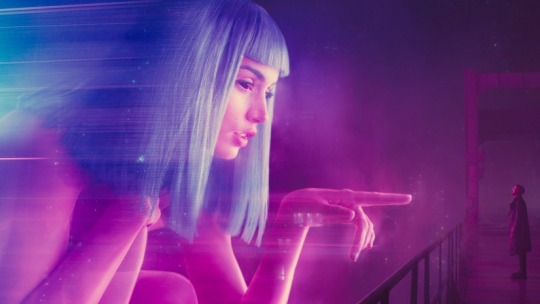#admittedly it's mostly out of love but some of it is out of neurosis
Explore tagged Tumblr posts
Text
Was contemplating whether or not to rewatch the specials before watching and dreaming comes out and then I remembered that the last time I watched thanks to them and for the future was...(checks notes) 20 days ago (KEEP IN MIND I'VE ALREADY SEEN THE SPECIALS AT LEAST 4 OTHER TIMES) I think it's safe to say that. I Do Not Need To Do That
#ramblings of a lunatic#toh#i saw that post about needing to rewatch the source material to renew your fandom license (which was a good post and joke)#and now I'm too over cautious. i have seen this show so many fucking times#admittedly it's mostly out of love but some of it is out of neurosis#which is just a little fucked up#tbh rn if i could rewatch any episodes it'd probably be early season 1 since a) they're the most lighthearted#and b) they're the most far removed in my brain rn#I'm so excited for watching and dreaming but I physically cannot fucking think about it or I'll die#I'm rewatching ninjago w/ my friends rn (after having not seen it in YEARS and also only ever watching the first 2 seasons)#and let me tell u it is a Great distraction from the dread#like i said a while back I'm gonna be binging baby comfort media after the finale 😭😭😭#in the week leading up to it i think I'll make a bingo card with my friends tho depending on if we get new stuff#we got the thumbnail and i feel like a week before the episode they tend to post a clip or two from the ep?#thanks to them had both clips released concurrently at nycc (which was a good few weeks before the episode aired. maybe even a month)#and for the future got one clip a week or so before airing and then the day before airing as well i think#so I'm intrigued to see what the promo timeline will be like for watching and dreaming? they probably can't do too much#not without spoiling us lmao#maybe a week or few days before we'll get just a poster and maybe (if they have time) some crew art/promos#we'll see tho#(<- getting caught up in irl minutiae helps me distract myself. lol <3)
6 notes
·
View notes
Text
Charmed - Season Six Review

"It helps to be a sister."
With more plot holes than actual plot, some really questionable character arcs, and frustratingly inconsistent mythology, Season Six is undoubtedly one of Charmed's worst years.
Following the downward trajectory that began in the latter half of Season Five, we enter Season Six with the series in a state of confusion. Piper and Leo's separation is, unfortunately, the crux of the season, and the character responsible for all this - Chris - plays a frustratingly important role in the season as well. Portrayed by an actor with the charisma of a dead fish, and written with very little conviction, Chris is probably the worst major character the series ever introduced. As we watch the more familiar and, yes, admittedly bland Leo slowly grow apart from Piper and the sisters, we're forced to endure a very slow, and very odd reveal of Chris' true identity. Episodes like 'Chris Crossed' try to add depth to him, but the general confusion surrounding his place in the series make it more of a baffling watch than a satisfying one.

Initially coming across as somewhat of a villain, it's obvious that Holy Marie Combs' pregnancy threw the writers under the bus, with Chris' subsequent unveiling as Wyatt's brother raising more than a few questions about what came before it. Like why would Chris kill a Valkyrie with such reckless abandon in the season premiere, and why did he have to go through all the effort of enlisting a demon just to teach the sisters a lesson about their individual wants and desires in 'My Three Witches'? And how the hell did Drew Fuller ever get hired in the first place?
Chris' plan also required him to keep Piper and Leo apart so he could place himself close to Wyatt, but watching the separation unfold is a truly aggravating experience, especially when it felt neither organic, nor appropriate. There are a few parts of the season that try to toy with Piper's role as a single mother, though the inconsistent writing prevents most of these moments from hitting home. There are some admittedly strong scenes that explore Piper's pain over Leo's departure, notably in the premiere where Phoebe's new power of empathy allows her to feel the hurt and betrayal that Piper had been holding back for months thanks to a spell gone awry. Largely, though, the arc is a mess, and it’s a relief when it all comes to an end with baby Chris' birth in the finale.

Chris' plan to save Wyatt from getting corrupted by evil forces leads us to the show's first major antagonist since The Source; the misguided Elder, Gideon. His motives are flimsy as hell, but the presence of a primary villain is welcome in light of the reversion to a stand-alone narrative last season. The story never quite works, with Gideon's reasons for betraying the sisters and attempting to destroy Wyatt feeling a little unfounded. There are some interesting repercussions to his actions, though. Leo's decision to kill Gideon for betraying him essentially ends his time as a fully-fledged Elder, sending him down a dark path next season.
Outside of Piper and Leo's family drama, there are just as many issues to be found, with Phoebe's plots this season continuing her path to full-on narcissism. Gone are the days of the fun, relatable misfit. Now she's much more concerned with sperm hunting and using, abusing and later losing her new power of empathy to find said sperm. Bar a few fun moments, Phoebe is pretty abhorrent this season. It's hard to feel sympathy for her anymore, and most of the beats her arc hits feel like they're driving her character further and further into the ground. This season also marks the first instance of a tradition that lasts through to season eight; Phoebe's annual love interests. Here, it's a carry-over from last season; Jason Dean. He's mostly fine, though he falls squarely into the same category as most male characters on this series and becomes rather disposable. He eventually departs after finding out Phoebe's secret and he isn't missed.
Paige's decision to quit her job as a social worker last season is still causing her to drift from place to place. But rather than mooching around the manor honing her witchcraft as she did in Season Five, here she takes up temping, giving the writers a chance to throw her into a new and absurd situation each week. Some of these fall flat (hi, talking dog!), but some do lead to some genuinely intriguing situations, most notably in 'Love's a Witch', where Paige is caught in the middle of a magical family feud. The episode is decent enough, though it's more significant for its introduction of Paige's semi-recurring love interest, Richard. Initially appearing as a witch with a magic-averse attitude, we soon learn about his addiction to dark magic. There are some cool, dark little moments for Richard, but in general the plot is never fully realized and his addictions eventually drive him away from Paige. I think the biggest problem with Paige's weekly exploits is that each of them seem to emphasize how uneven she's become. At least her early episodes in Season Four are mostly consistent; you could really get to know her. Here she goes from peace-maker, to busybody, to activist, to floozy to a whole host of other things and it’s hard to get a read on who she is anymore, which is a huge disappointment.
It goes without saying that there are very few great episodes, this season. 'Love's a Witch' is one of them, as is the two-part season finale 'It's a Bad, Bad, Bad, Bad World'. The idea of dual realities is something that’s done a lot on other high concept shows, and it's explored in a fun and creative way, in this double lenghth episode. It also gives a choppy and dissatisfying season a remarkably poignant ending, with future Chris' death, and the birth of baby Chris. 'Forget Me... Not' is another highlight that has a lot of fun with a broken timeline, and it also features a cool little mystery that drives the hour to a crazy witch/dragon showdown.

Rare highlights aside, this season is a total mess. 'Witchstock' is a crock of an episode, where a wasted trip to the 60's feels like more of a chance to poke fun at the visuals of that era more than anything else. It's also completely devoid of any of the emotional resonance of 'That 70's Episode' back in Season One. 'Crimes and Witch Demeanours’ is a dull clip-show, that makes a half-hearted attempt to make amends for the girls' abuse of Daryl, who is at this point a walking, talking plot device. 'Prince Charmed' takes the cake, though (literally). It’s an abhorrent hour that features Phoebe and Paige acting like brain-dead bimbos, while Piper makes some really questionable choices about her love life and role as a single mother. It culminates in an embarrassing food fight that is hard to watch, not just because its an awfully written scene, but because it's hard to see three characters who were once so admirable acting like this. I feel so bad for Holly. She deserves so much better than this sub-par material.
Potions and Notions
The Cleaners pop up this season. Their job is to clean up whenever magic is exposed. Where were they when Prue and Piper were exposed on live TV in 'All Hell Breaks Loose'?
There's a weird separation story line that plays out mid-season when Phoebe and Paige decide to leave with their respective beaus. It wraps up without much fanfare when Phoebe splits from Jason, and Paige leaves Richard.
Spells and Chants
Piper: "Okay, neurotic people, can we get back to my neurosis right now, please?"
Piper: "Come to me and be seduced, I have a girl to introduce. Fall for her, you can't resist her, Trust me, mister, she's my sister."
Chris: "I'm Piper and Leo's son." Paige: "What?" Chris: "They're my parents. I came back to save my family." Paige:"You're serious." Chris: "Yeah. Only now I've gotta save myself. Because if my mom doesn't get pregnant in the next month, there is no me." Paige: "This is all so wrong!" I'm right there with you, Paige.
Best Episode: It's a Bad, Bad, Bad, Bad World.
Honorable Mentions: Forget Me... Not, Love's a Witch, I Dream of Phoebe.
Worst Episode: Prince Charmed.
It's a shame that the decision to return to a big bad formula is destroyed by clumsy plotting and hack dialogue. At least Chris' death gives the series the chance to move on from this mess next season and try something new.
4 out of 10 Valkyries.
Panda
#Charmed#Piper Halliwell#Phoebe Halliwell#Paige Matthews#Charmed Reviews#Doux Reviews#TV Reviews#something from the archive
3 notes
·
View notes
Text
Blade Runner 2049 (Villeneuve)

“’You liked her, I could tell. It’s ok, I want to be real for you.’
‘You are real for me.’”
“The things that come to light brutally in insanity remain hidden in the background in neurosis, but they continue to influence consciousness nonetheless. When, therefore, the analysis penetrates the background of conscious phenomena, it discovers the same archetypal figures that activate the deliriums of psychotics.” - Jung, The Archetypes and the Collective Unconscious
cw: spoilers for films and books discussed
I wanted to talk about this film for a while; because it’s one of my favourite sequels, because I think it was one of the best films of last year, because I think most audiences will woefully under appreciate how good this is in comparison to most of what Hollywood produces. Don’t get me wrong: I’m not trying to lay claim to this as an enduring work of genius, proffering the greatest insights into human nature since a certain Austrian dosed half his body weight in cocaine. I’m just saying that I really, really liked it, and it gave me much more than I’ve come to expect from Hollywood. Admittedly, not a high bar. But don’t let that fool you.
Quick diversion: in The Great Gatsby Fitzgerald breaks one of the golden rules of writing: never explicitly state your theme. It’s uncouth; ugly, unsightly, inelegant. The reason it works so well in his book is because he understands the rule well enough to break it poetically in the very final line. It’s difficult to do this; extremely difficult to write, extremely difficult to write an entire novel, and extremely difficult to break this rule in such a way that it doesn’t appear jarring and ugly to the reader. 2049 breaks the rule roughly halfway through, in a scene where Lieutenant Joshi (Wright) and K (Gosling) are talking in his apartment; K concedes his memories aren’t real, they’re ‘implants’ constructed by someone else. Fake memories for a fake human being? Joshi has a pattern in her interactions with K; she alternates between reaffirming the fact that he’s a replicant, and then making some reassuring, almost maternal remark. “You might be a replicant/not human, but I care for you” Anyway, inside his apartment she gives one line that spells it all out:
“We’re all just trying to get a hold of something that’s real”
This isn’t posed as some sophisticated ontological argument; 2049 had emotional impact (individual mileage may vary, obviously) precisely because your unconscious perceives these characters as being beneath... well, something aspiring to be, not human, but real. Seriously, watch the film, and then try and understand your transference with these characters. It’s almost like a parent to a child. Joi has a final heartbreaking scene with K; “I love you” right before black leather boot smashes her corporeal form into the floor. Note that her corporeal form, her physical substrate/soul, is a shiny metallic cylinder that serves both as her brain, and the device that projects her holographic image. Could you love a computer program that manifests itself in ‘human’ form via holographic projection?
Of course you could. Of course you would. Everything is just a symbol, a representation. Map to territory. How do you know your partner isn’t a hologram right now? “Well I can touch them and they can move around and” ok, fine. How about an android? “Well I could open them up and...” except you’re not going to open anyone up. I’m not trying to be a pedant here; no, really - I find Socrates and the dialectical form to be an enormous pain in the ass when it comes to writing. “We arrive at verisimilitude by ping-ponging between falsehoods...” (in an essay so painfully good it makes me insecure) this is true - it’s the meta-level analysis of Socratic dialogue. It’s why its effective. Binary. Two people arguing back and forth. But really, have you ever viewed the insides of anyone you’ve loved in real time? Unless you’re a surgeon, the answer is probably a hard no. Once again, not trying to be a pain in the ass, just pointing out that you assume this is the truth based on your experience of the world in general. This isn’t an insult, it’s system one thinking. The proof that it works is that the human race is around and I’m writing this essay. If you claim you couldn’t love an android because you know they’re an android, then you’re prizing - fetishising (if that word hasn’t been overused at this point) - what it means to be human. If any common sense inspection couldn’t tell you the difference between a human - mostly water and hydrocarbons, and an android - for arguments sake - mostly silicon, then what are the consequences of having sex with one versus the other? Yes, this is just consequentialism. It holds. In the most dire interpretation, having sex with a robot indistinguishable from a human is no worse than masturbation; a one night stand, streaming 4K porn on your smartphone etc. No emotions, just some object to use as a prop.
Does Joi really know what love is? Well, what’s Joi? She’s a computer program, granted. Produced en masse and sold to keep lonely people company. A next generation Aibo, sans memory stick and music playing abilities (unfortunately) The film doesn’t have any hard exposition here but I’m going to assume for conveniences sake that once she’s purchased by someone, she, in a sense, imprints and begins to develop some kind of original growth. She’s projected from the in K’s apartment at first - a physical constraint. Then he cashes in his big cheque to buy her a portable ‘emanator’ - intentional or not on the part of the writers, this is like letting a child begin to grow up. Joi follows a process of self-actualisation in the film as she begins to take on increasing responsibility - and risk. From ceiling, to outdoors, to adopting a semi-corporeal form and making love to K, to willingly accepting the ultimate vulnerability: the potential to die. Love, actual, genuine, bona fide love, requires self-sacrifice. It requires adapting to meet the demands, “mental and physical” of someone else. You can phrase your argument around neurotransmitters and hormones and so on, but limerence only gets you so far; at some point, adult to adult, you will have to adapt and communicate with each other. Vulnerability to intimacy.

Her love for K is more real than the love some adults of our species achieve during their lifetime. It’s not childish or infantilised; he sacrifices his entire bonus, the source of his power, to free her from her constraints. Reassures her that she doesn’t need to affirm her love for him just because its in her programming (is it?), and then ultimately, her love finds expression in the ultimate vulnerability... and its tragic conclusion.
Peter Debruge, writing for Variety, I think manages to miss what the ‘unreal’ things in this film want: “It’s perhaps the central irony of “Blade Runner 2049,” which depicts a future where humans have gone astray, while new-and-improved androids know precisely what they want: to be human.” They don’t want to be human, they want to be given equal rights as humans. Humane treatment. Reproduction? Sure - but how many people are actively thinking about having kids in that way? They need a partner; for this to work, all the right emotional modules have to be in place. And they’re already human in every way that counts - all that’s missing is their rights. Joi just wants a physical body, K wants to know what the deal is with his memory. You can see how much he suffers, his pain, his despair. “Your memories, that you thought were a lie, are actually real” Can you even begin to imagine this kind of pain? What if somebody told you you were an android? What kind of existential crisis would you suffer, given those circumstances? It’s not about being human, it’s about being recognised as real and treated with humane compassion.
1 note
·
View note